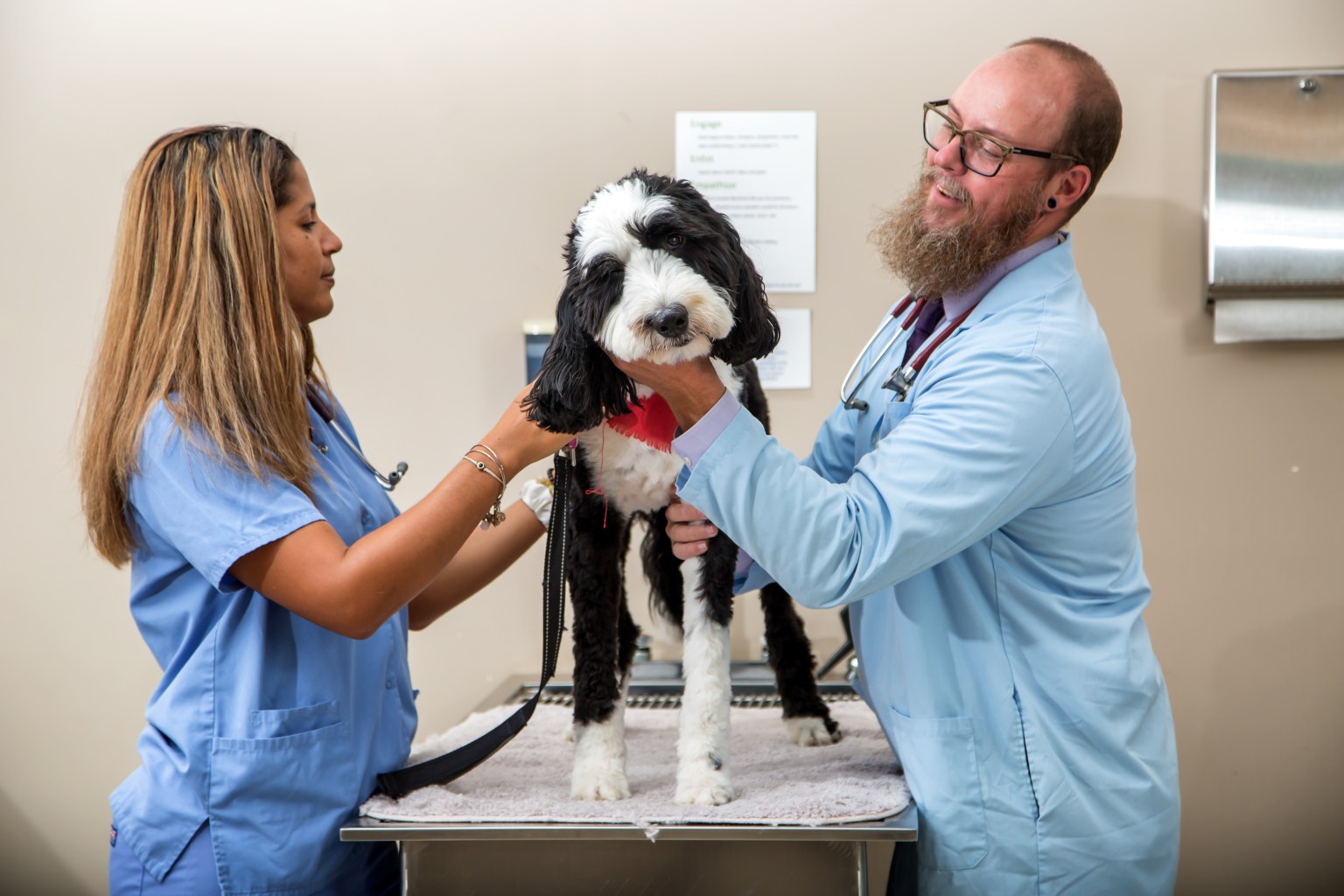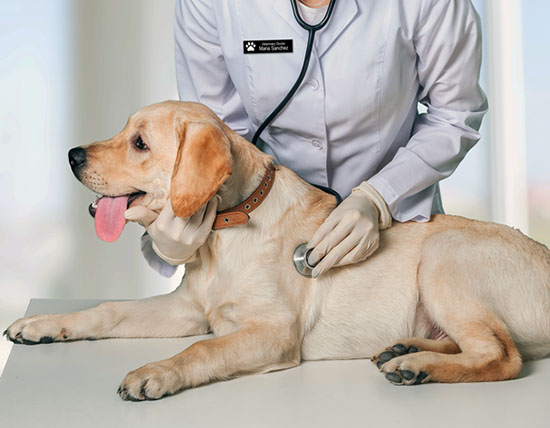Recovery tips after Pet Cancer Surgery
Wiki Article
Just How a Vet Oncologist Can Aid Improve Your Pet dog's Lifestyle
Veterinary oncologists specialize in the diagnosis and treatment of cancer in family pets, playing a crucial role in enhancing their lifestyle. They create personalized treatment strategies that address the distinct needs of each animal. Via innovative diagnostics and targeted treatments, these experts aim to handle symptoms efficiently. However, the journey does not finish there. Exploring the full range of treatment choices exposes more about just how these professionals can make a considerable difference.
Comprehending the Role of a Vet Oncologist

Along with medical diagnosis, veterinary oncologists establish detailed treatment strategies tailored to the demands of each pet. These approaches may consist of chemotherapy, radiation therapy, and medical interventions, focused on not only prolonging survival but likewise enhancing the overall lifestyle. They give palliative treatment, focusing on pain monitoring and comfort for family pets facing terminal diagnoses. By collaborating with family pet proprietors, vet oncologists ensure that animals get one of the most thoughtful and efficient treatment feasible during their cancer trip.
Tailored Therapy Plans for Your Family pet
When a pet dog is diagnosed with cancer, creating a tailored treatment plan comes to be important for resolving their one-of-a-kind needs and situations. A veterinary oncologist meticulously examines the kind of cancer cells, its phase, and the overall health of the animal. This detailed assessment allows for the creation of a customized technique that might include a combination of surgical procedure, radiation, and radiation treatment therapy.The oncologist likewise thinks about the animal owner's preferences and lifestyle, guaranteeing that the strategy straightens with their objectives for their animal's care. Veterinary Oncologist. Treatment strategies are not fixed; they are on a regular basis examined and readjusted based upon the family pet's action and any type of emerging demands. By concentrating on personalized care, vet oncologists intend to enhance the efficiency of treatments while maintaining the pet dog's high quality of life. This customized approach cultivates a much better understanding of the disease, empowering pet dog proprietors to make enlightened decisions concerning their cherished companions' wellness
Managing Signs And Symptoms and Side Effects
Handling the symptoms and negative effects of cancer cells treatment is a crucial component of veterinary oncology. Vet oncologists utilize a range of techniques to minimize discomfort and boost the general well-being of pets undertaking treatment. This may consist of making use of anti-nausea medicines to battle vomiting and loss of hunger, which are usual negative effects of chemotherapy. Pain monitoring is also prioritized, frequently involving the prescription of analgesics tailored to the family pet's details needs.Furthermore, oncologists may suggest nutritional adjustments, incorporating top notch, easily digestible foods to support nutritional intake. Keeping an eye on blood job is essential to spot any type of unfavorable responses to therapy early, permitting prompt treatments. Routine follow-ups allow the vet group to examine the family pet's action to treatment and make needed changes. Via these detailed approaches, vet oncologists intend to boost the lifestyle for family pets encountering cancer cells treatment challenges.
Palliative Care and Comfort Actions
Palliative treatment plays a critical duty in improving the high quality of life for animals diagnosed with cancer, concentrating on comfort and emotional support instead than medicinal treatment. Veterinary oncologists focus on discomfort administration, guaranteeing that pets experience marginal discomfort during their health problem. This consists of using analgesics, anti-nausea medications, and various other therapies tailored to specific requirements.In addition to pharmacological interventions, ecological adjustments can considerably improve a pet dog's top quality of life. Producing a tranquility, comfy space with soft bed linens and simple access to food and water can relieve anxiety. Nutritional support is likewise important; oncologists might suggest customized diet plans that accommodate the family pet's preferences and demands.
Emotional assistance for both the pet websites and its proprietors is essential. Vet oncologists offer advice on coping methods, helping households browse the emotional obstacles that accompany a cancer cells medical diagnosis. Eventually, palliative treatment aims to ensure that pet dogs receive the dignity and comfort they are entitled to.
Collaborating With Your Normal Veterinarian
Partnership with a normal veterinarian is necessary for optimizing the care of pet dogs with cancer, as this partnership ensures a complete approach to treatment and lifestyle. The normal veterinarian usually has a thorough understanding of the pet's case history, which is crucial when creating a treatment strategy. They can effectively communicate with the veterinary oncologist, making sure that all facets of the pet dog's health are considered.This partnership enables for collaborated care, which might consist of normal exams, keeping track of adverse effects, and changing medicines as needed. Routine veterinarians can likewise offer emotional useful link assistance to pet dog proprietors, assisting them browse the intricacies of cancer cells therapy - Pet Cancer Surgery. By functioning closely with vet oncologists, they can assist in a seamless shift between various sorts of treatment, making sure that animals receive the most reliable therapies while preserving their comfort and well-being throughout the procedure. With each other, they improve the overall lifestyle for pet dogs encountering cancer
Frequently Asked Inquiries

What Kinds of Cancers Do Veterinary Oncologists Generally Treat in Animals?
Veterinary oncologists usually deal with different cancers in family pets, consisting of lymphoma, mast cell growths, osteosarcoma, and soft tissue sarcomas. These experts utilize sophisticated diagnostic techniques and treatment options to address the particular requirements of each animal.How Can I Prepare My Animal for a Veterinary Oncology Appointment?
Preparing a pet for a vet oncology consultation includes event medical records, noting symptoms, and preparing concerns. Ensuring the pet dog is tranquil and comfy throughout traveling can also greatly boost the total experience and assessment effectiveness.Are There Any Kind Of Alternate Therapies for Pet Dogs With Cancer cells?
Alternate therapies for pet dogs with cancer typically include acupuncture, natural medicine, and dietary assistance. These methods might match conventional therapies, potentially boosting general well-being and giving helpful treatment throughout the animal's cancer cells journey.How Usually Should My Animal See the Vet Oncologist?
The frequency of brows through to a veterinary oncologist typically depends upon the pet's particular problem and treatment strategy. Regular evaluations might be suggested every couple of weeks or months to keep track of progression and adjust therapies as necessary.What Expenses Are Related To Veterinary Oncology Solutions?
Expenses associated with vet oncology solutions can vary extensively, including preliminary appointments, diagnostic tests, therapy strategies, and ongoing care. Veterinary Oncology Services. Pet dog owners ought to plan for potential expenses that show the intricacy and period of the treatment neededVeterinary oncologists specialize in the medical diagnosis and therapy look at here of cancer cells in animals, playing a vital duty in enhancing their quality of life. Numerous family pet proprietors might not be acquainted with the complexities of veterinary oncology, comprehending the duty of a vet oncologist is essential for managing cancer in animals. The oncologist likewise thinks about the family pet proprietor's choices and way of living, guaranteeing that the strategy aligns with their goals for their animal's care. By focusing on individualized care, vet oncologists intend to boost the performance of therapies while keeping the pet dog's high quality of life. By working closely with veterinary oncologists, they can facilitate a smooth change in between different types of care, ensuring that pet dogs receive the most effective therapies while keeping their convenience and wellness throughout the process.
Report this wiki page